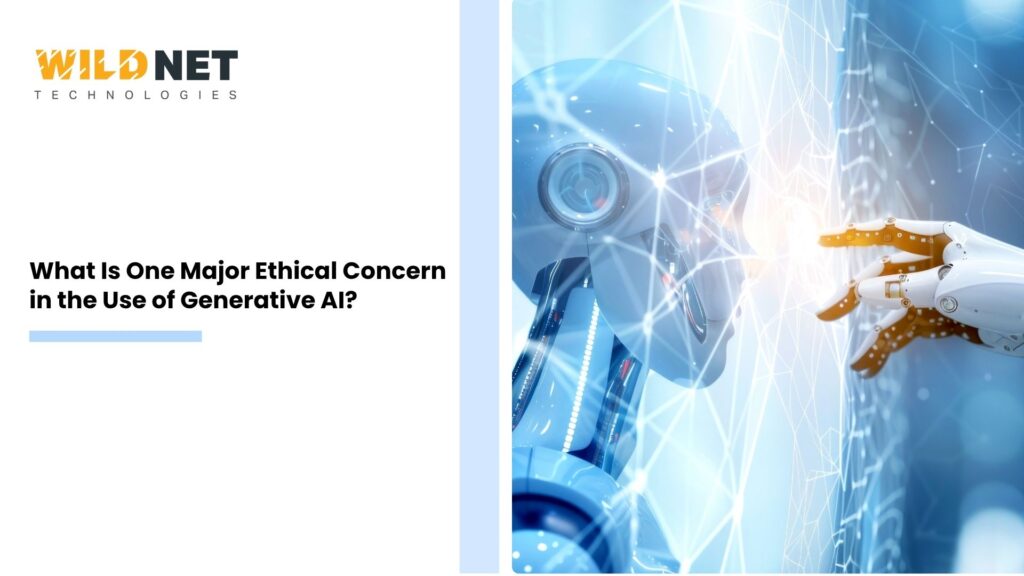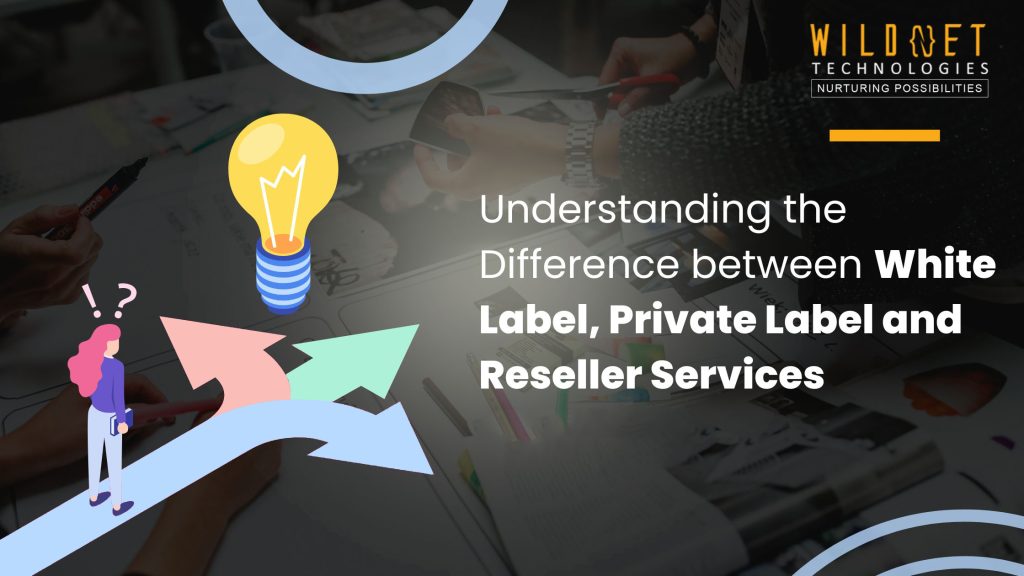Generative AI is a rapidly growing field that has the potential to revolutionize industries ranging from art to medicine. Its ability to create new, unique content can lead to groundbreaking advancements, offering innovative solutions to longstanding problems. However, with great power comes great responsibility, and the use of generative AI raises critical ethical questions. These questions are not mere academic exercises; they have real-world implications that can affect individuals and societies. One primary ethical concern in generative AI is the potential for bias and discrimination.
What Is One Major Ethical Concern In The Use Of Generative AI? This article will delve into this concern, exploring how it manifests in AI systems and what can be done to address it. By understanding the roots of this issue, we can work towards developing AI systems that are both powerful and fair.
Before tackling the ethical concerns, it’s essential to understand generative AI. Generative AI is a class of artificial intelligence systems designed to generate new content. This can include anything from text and images to music and video. These systems use algorithms to analyze existing data and create new data that mimics the original content. The versatility of generative AI allows it to be applied in various fields, from creating realistic virtual worlds in gaming to generating synthetic data for research purposes. Understanding the mechanics of generative AI is crucial for grasping how biases can be introduced and propagated.
Generative AI models, such as Generative Adversarial Networks (GANs) and Variational Autoencoders (VAEs), rely on training data to learn patterns and structures. Once trained, these models can produce new, similar data. For example, a generative AI model trained on thousands of images of cats can create realistic images of cats that never existed. In the case of GANs, this process involves two neural networks: a generator that produces data and a discriminator that evaluates it, improving the model’s output over time.
The potential for creativity and innovation is vast, but so is the risk of embedding existing biases into these new creations, which can have far-reaching consequences if not carefully managed.
One of the most significant ethical concerns in generative AI is bias. Bias in AI systems occurs when the algorithms produce results that systematically favor or disadvantage certain groups of people. This can lead to discrimination in various forms, including racial, gender, and socioeconomic biases.
Such biases can profoundly affect decisions in critical areas such as hiring, lending, and law enforcement. Understanding how bias can infiltrate AI systems to address and mitigate these issues is essential.
Bias in AI can arise in several ways:
- Data Bias: The training data used for generative AI models may be biased. If the data reflects societal biases, the AI model will learn and reproduce these biases. For example, if a dataset used to train a facial recognition AI predominantly features images of individuals from a specific ethnic group, the AI may perform poorly on individuals from underrepresented groups. This perpetuates existing inequalities and can lead to significant errors in applications where accuracy is critical, such as in security settings.
- Algorithmic Bias: The algorithms themselves can introduce bias. Some AI models may inherently favor specific outcomes based on their design, leading to biased results. This could occur through the choice of optimization criteria or the architectural biases of the neural networks. If left unchecked, these biases can propagate through the AI’s decision-making process, leading to skewed results that favor particular demographics over others.
- Human Bias: AI system creators may unintentionally introduce their biases into the design and implementation of AI models, affecting the outcomes. This can happen through the selection of features, the framing of the problem, or the interpretation of results. Human biases can be subtle and pervasive, making it crucial for AI developers to be aware of and actively counteract them in their work.
The Far-Reaching Impact of Bias in Generative AI
The implications of bias in generative AI are profound. In the context of hiring, biased AI systems could lead to discriminatory hiring practices by favoring candidates from specific backgrounds. This can perpetuate workplace inequalities and limit diversity, impacting organizational culture and innovation. In healthcare, biased algorithms could result in misdiagnoses for specific demographic groups, exacerbating health disparities and leading to inadequate care for those who are already marginalized.
Legal Consequences and the Urgency for Reform
The legal implications are also significant, as biased systems could result in unfair treatment in the criminal justice system, affecting sentencing and parole decisions. Understanding these real-world implications highlights the urgency of addressing bias in AI to prevent harmful outcomes.
Strategies to Combat Bias and Promote Ethical AI
Several strategies can be employed to mitigate the ethical concerns surrounding bias and discrimination in generative AI. These strategies must be comprehensive and multifaceted, involving technological solutions, regulatory frameworks, and organizational cultural shifts.
One of the most effective ways to reduce bias is to use diverse and inclusive datasets for training AI models.
Ensuring that training data represents a wide range of demographics can help AI systems perform more equitably across different groups. This requires intentional data collection practices that prioritize diversity and inclusivity. Organizations must invest in efforts to curate datasets that accurately reflect the populations they serve, which can involve collaborating with diverse communities to understand their unique needs and challenges.
Bias Detection and Continuous Monitoring
Implementing bias detection and correction mechanisms is crucial. Researchers and developers can use fairness metrics and adversarial testing techniques to identify and rectify bias in AI models. These tools can help pinpoint specific areas where bias is present and guide the development of algorithms that minimize these biases. Continuous monitoring and updating of AI systems are necessary to ensure they remain fair, especially as societal norms and values evolve.
Transparency and Accountability in AI Development
AI developers must prioritize transparency and accountability in their work. This includes documenting the sources of training data, the design of algorithms, and the decision-making processes involved in AI development. Transparency allows stakeholders to understand how AI systems function and assess their fairness and reliability. Accountability mechanisms, such as third-party audits and impact assessments, can provide oversight and ensure that AI systems adhere to ethical standards.
The Role of Ethical Guidelines and Regulations
Establishing ethical guidelines and regulations for AI development is essential. Governments and organizations can play a role in setting fairness, accountability, and transparency standards in AI systems. Multidisciplinary perspectives, including ethicists, technologists, and affected communities, should inform these regulations. By creating a robust regulatory framework, society can ensure that AI technologies are developed and used in ways that align with ethical principles and societal values.
Shared Responsibility for Ethical AI
Addressing the ethical concerns in generative AI is not solely the responsibility of AI developers. Society as a whole has a role to play in shaping the moral landscape of AI. This involves fostering a culture of ethical awareness and engagement with AI technologies.
Raising awareness about the ethical implications of AI is crucial.
Public Education and Ethical Awareness
Educating the public about how AI systems work and the potential biases they may contain can empower individuals to assess AI applications critically. This can be achieved through public campaigns, educational programs, and media coverage that demystifies AI technologies and highlights their potential impacts. An informed public can advocate for ethical AI practices and hold developers and policymakers accountable.
Collaborative Approaches to Ethical AI
Collaboration between AI developers, ethicists, policymakers, and the public is essential to effectively addressing ethical concerns. Open dialogue can lead to more informed decisions about developing and deploying AI technologies. By fostering a collaborative environment, stakeholders can share insights, challenge assumptions, and co-create solutions that address ethical challenges. This inclusive approach ensures that diverse perspectives are considered, leading to more equitable and just AI systems.
Conclusion: Shaping a Responsible Future with Generative AI
Generative AI has the potential to transform industries and improve lives, but it also presents significant ethical challenges. The potential for bias and discrimination in AI systems is a primary concern that requires careful consideration and action. By prioritizing diversity in data, implementing bias detection mechanisms, and fostering transparency and accountability, we can work towards a more equitable and ethical future for generative AI. These efforts must be part of a broader societal commitment to ethical AI development, involving collaboration across sectors and ongoing public engagement.
What Is One Major Ethical Concern In The Use Of Generative AI? It is the potential to reinforce biases and spread misinformation, which can deepen social divides and erode trust. Addressing these ethical concerns ensures that the benefits of AI technology are shared by all rather than perpetuating existing inequalities. As we continue to develop and deploy generative AI systems, our collective responsibility is to ensure they are used ethically and responsibly. By doing so, we can harness the power of AI to create a more inclusive and just society, where technology serves as a tool for empowerment and positive change.
The unchecked spread of misinformation is a pressing ethical concern in the use of generative AI. Inaccurate content generated at scale can mislead audiences, harm reputations, and distort public discourse. Companies must act responsibly and transparently as generative AI becomes more integrated into marketing and content creation.
At Wildnet, we understand the importance of ethical innovation. While leveraging AI to enhance our digital marketing services, we Best Digital Marketing Company in lndia remain committed to accuracy, integrity, and client trust. By combining the power of AI with human oversight, Wildnet ensures that your brand grows responsibly in the digital age.
1. Why is misinformation a major ethical issue with generative AI?
Ans. Generative AI can quickly produce realistic but false narratives, images, or videos, making it easier to deceive people at scale. The lack of fact-checking mechanisms in many AI systems increases the risk of misinformation spreading online.
2. How can generative AI affect public trust?
Ans. When AI-generated content is mistaken for legitimate news or factual information, it undermines trust in media, institutions, and digital content. This can polarize opinions and confuse public discourse.
3. Are there safeguards against AI-generated misinformation?
Ans. Some platforms implement watermarking, content verification tools, and usage policies. However, enforcement remains a challenge, and many tools are still in development or not universally applied.
4. What role do developers play in addressing this concern?
Ans. Developers are ethically responsible for training AI models with high-quality data, applying guardrails, and ensuring transparency in how models are used and deployed, especially in sensitive domains like politics, health, or finance.
5. Can regulation help mitigate misinformation risks from AI?
Ans. Yes, regulatory frameworks can help by setting standards for accountability, content labeling, and ethical AI development. However, these laws are still evolving and vary widely across regions.
Read More
How Can Generative AI Improve Seo Strategies for Brands?
ChatGPT, Google Bard, And Anthropic Claude Are Examples Of Which Type Of Generative AI model?
The Power of Generative AI in Real Estate in 2025
Generative AI Developments in 2024 & 2025
What Is One Thing Current Generative AI Applications Cannot Do?







